Security
The decision to travel is your responsibility. You are also responsible for your personal safety abroad. The Government of Canada takes the safety and security of Canadians abroad very seriously and provides credible and timely information in its Travel Advice. In the event of a crisis situation that requires evacuation, the Government of Canada’s policy is to provide safe transportation to the closest safe location. The Government of Canada will assist you in leaving a country or a region as a last resort, when all means of commercial or personal transportation have been exhausted. This service is provided on a cost-recovery basis. Onward travel is at your personal expense. Situations vary from one location to another, and there may be constraints on government resources that will limit the ability of the Government of Canada to provide assistance, particularly in countries or regions where the potential for violent conflict or political instability is high.
Rocket fire
Cities across Israel may be targeted by rocket fire from the Gaza Strip. Rockets fired from Gaza have reached Jerusalem, Tel Aviv and Hadera, and have also struck close to Haifa, located approximately 150 km north of the Gaza border. Rocket fire from Lebanon, Egypt and Syria has also targeted northern Israel, Eilat and the Golan Heights. Follow safety advice and instructions from the Israel Defense Forces’ (IDF’s) Home Front Command.
The Gaza Strip (see Advisory)
From July to August 2014, the IDF carried out a military operation in the Gaza Strip, during which it conducted air strikes and a ground operation. Although a cease-fire was declared on August 27, 2014, hostilities could be renewed and the security situation in the Gaza Strip could deteriorate with little or no notice. Remain aware of your surroundings, stay informed of the security situation and follow directives from the IDF’s Home Front Command.
Border areas with Israel are particularly dangerous. Border crossings to and from the Gaza Strip are controlled by Israeli and Egyptian authorities, and are subject to unexpected, sometimes long-term closures. You may not be able to exit the Gaza Strip even if you are in possession of valid entry and exit permits.
There is a high risk of kidnapping in the Gaza Strip and foreigners may be targeted. Maintain a high level of vigilance at all times.
The Government of Canada’s ability to provide consular services to Canadians who remain in the Gaza Strip is currently very limited.
The security situation along the coast of Gaza remains dangerous and volatile. In May 2010, an attempt to breach the naval blockade along the coast of Gaza was intercepted by Israeli security forces and resulted in deaths, injuries, arrests and deportations. Similar attempts to breach the naval blockade have taken place since. You are strongly advised against participating in any attempt to break the naval blockade. Canadian officials may not be able to provide you with consular assistance if you choose to participate in the flotilla. Participants may be detained by Israeli officials prior to their deportation. In cases of deportation, local authorities are not obliged to notify the Canadian embassy.
Border with the Gaza Strip (see Advisory)
From June to August 2014, rocket and mortar launches, gunfire and military activity increased significantly in the areas of Israel surrounding the Gaza Strip. Although rockets fired from Gaza can reach Jerusalem, Tel Aviv, Hadera and Haifa, cities and towns within 40 km of the Gaza Strip, such as Ashdod and Beersheva, are most likely to suffer material damages and casualties.
Syrian Border (see Advisory)
Do not travel east of Highway 98, except to the urban communities of Buq’ata, Mas’ada and Majdal Shams, and do not approach the Israeli barrier in the Golan Heights that borders Syria. Increased militant activity close to the Israeli barrier in the Golan Heights, including the use of improvised explosive devices, and attempts to penetrate the barrier from the Syrian side, make the area extremely dangerous. Cross-border gunfire could occur without warning, and the Israeli Defence Forces (IDF) conduct military operations in the area.
Regions of Israel bordering Egypt (see Advisory)
The security situation could deteriorate rapidly and there is an increase threat of kidnapping, specifically on Highway 10 between the Sayarim Valley and the Kerem Shalom Border Crossing; and Highway 12 between Eilat and the Netafim Border Crossing.
The highways are subject to closure without warning by Israeli authorities. Attacks occur and the area remains dangerous. The security situation has the potential to deteriorate at any time. There is an increased risk of kidnapping on these highways.
Jerusalem
Protests and demonstrations have become increasingly common in East Jerusalem and parts of the Old City, and many lead to clashes between protestors and local authorities. There is an increased police presence in some areas of Jerusalem, and security forces are on heightened alert. Exercise a high degree of caution at all times. Avoid all demonstrations and large gatherings, as they may turn violent without notice. Monitor news reports, and follow the advice of local authorities.
During periods of imposed movement restrictions and religious holidays, as well as when national developments may have an impact on the local population, tensions may be exacerbated and lead to security incidents. Limit your movement to the Old City during such periods. Travel in groups and dress conservatively at all times. Demonstrations can occur in religious neighbourhoods and sometimes result in clashes between residents and the local police. Traffic may also be disrupted.
West Bank, excluding Ramallah, Jericho and Bethlehem (see Advisory)
Since early July, several West Bank cities have experienced violent demonstrations and civil unrest, which have led to clashes between police and protesters. The situation remains volatile. Maintain a high level of vigilance and personal security awareness, monitor local developments and follow the advice of local authorities.
There is a potential for inter-factional tension, demonstrations and military operations in the West Bank. There are frequent police and military operations targeting militants in cities and villages throughout the West Bank, particularly in Nablus, Jenin, Qalqiliyya, Tulkarem and the refugee camps. It is not possible to travel without passing through multiple Israeli military checkpoints. There is a threat of demonstrations and violent outbreaks occurring in areas near checkpoints. Areas in the vicinity of the barrier separating the West Bank and Israel are particularly high-risk. Travel only during the daytime and do not stay overnight.
In Hebron and in other parts of the West Bank, there remains potential for violence between settlers and Palestinians or between Palestinians and Israeli security forces.
There is a high risk of kidnapping in the West Bank cities of Nablus and Jenin. Foreigners have been kidnapped in the past. Maintain a high level of vigilance at all times.
If you are travelling to the West Bank despite this advice, ensure that you have appropriate security measures in place to protect yourself, as well as alternative travel arrangements in case of a rapid deterioration in the security situation. Carry your passport at all times, register and maintain contact with the Representative Office of Canada in Ramallah, keep a low profile, monitor local news reports and follow the advice of local authorities.
Ramallah, Jericho and Bethlehem (West Bank)
The level of violence in these three cities has remained relatively low compared to other areas of the West Bank in recent years. Nevertheless, the potential for political demonstrations and military incursions remains. Exercise a high degree of caution, avoid all demonstrations and large gatherings, follow the advice of local authorities and monitor local media.
Northern Israel
Exercise a high degree of caution when travelling to regions near the border with Lebanon. While a cessation of hostilities remains in effect between Israel and Hezbollah forces following the 2006 conflict, stability in the northern region of Israel could deteriorate rapidly without notice. Rockets fired from Lebanon into northern Israel have reached Shlomi and Kiryat Shmona. Although tensions have subsided since the 2006 conflict, there is still a strong potential for future incidents.
The security situation in the areas near the border with Syria is also unpredictable and could change without warning.
Terrorism
In past years, terrorist incidents have occurred in a variety of locations in Jerusalem, Tel Aviv, Eilat, Haifa, Beersheba, Netanya and other major populated centres, including at tourist sites, on public transportation and in other public areas, causing numerous deaths and injuries. Foreigners have been affected but have never been directly targeted. There is potential for further violence. Incidents could be unpredictable and there is a strong risk that you could find yourself in the middle of a dangerous situation.
On October 22, 2014 pedestrians were run-over by vehicles in terrorist attacks near Light Rail stations in West Jerusalem, resulting in fatalities. On October 29, a man was shot outside a conference hall. Several other terrorist attacks in mid-November 2014 caused fatalities in Jerusalem, the West Bank, and other parts of Israel. Such attacks are likely to continue. Five people were killed and several injured during a terrorist attack on a synagogue in West Jerusalem on November 18. On November 10, two knife attacks in Tel Aviv and the West Bank left a soldier and a civilian dead, as well as several wounded. The first stabbing took place outside the entrance to the Hagana train station in south Tel Aviv. A few hours later, a woman was stabbed to death and three others were badly wounded in a terrorist attack when a man drove into at a bus stop near the West Bank settlement of Gush Etzion, got out of his car and began randomly stabbing people. On December 3, a terrorist stabbed and seriously injured two people in a supermarket in the Mishor Adumim Industrial Park, east of Jerusalem. These incidents followed a spate of terror attacks in recent weeks. Rioting and stone and Molotov-cocktail throwing are on the rise in Jerusalem, the West Bank and in some Arab-Israeli villages.
Police and security forces are on heightened alert. Exercise a high degree of caution when using public transportation, and after incidents of violence, public funerals and religious holidays, or when national developments may affect the local population.
Following terrorist incidents, the Government of Israel may establish checkpoints without warning. Exercise caution in public places, such as open markets and bus stations, stay informed of the security situation, monitor local news reports and follow the advice of local authorities.
Kidnapping
There is a general threat of kidnapping. Maintain a high level of vigilance at all times.
Crime
The crime rate is moderate in Israel but low in the West Bank and the Gaza Strip. Vehicle theft is a serious problem. Always lock car doors and keep windows closed. Thefts also occur on public beaches. Ensure that your wallet, money and valuables are out of sight, particularly in large crowds and public markets. Violent crime is rare.
Demonstrations
Planned and unplanned demonstrations regularly occur in Israel, the West Bank and the Gaza Strip. Demonstrations against the military have taken place in the Gaza Strip, the West Bank and Jerusalem; some have turned violent. Exercise particular caution if demonstrations take place around areas such as settlements, checkpoints or military zones.
Avoid crowds, political gatherings and demonstrations as they could turn violent without warning. Monitor news reports and follow the advice of local authorities.
Landmines
Live landmines are present in certain areas, including parts of the West Bank and along Israel’s borders. Some minefields have not been clearly marked or fenced. Walk only on established roads or trails.
Transportation
Exercise caution as there is a high rate of traffic fatalities. Consult the Israeli Police Traffic Department website for information on traffic laws.
Exercise a high degree of caution when using public transport.
Many of the roads in the Gaza Strip and the West Bank are of poor quality. During the winter months, precipitation can cause driving conditions to deteriorate.
The Israel Defense Forces often do not permit vehicles with Israeli licence plates to enter areas of the West Bank. Even if you have a valid visa and authorization to enter the West Bank, there is still no guarantee that the vehicle will be allowed to pass through security checkpoints. You may also be stopped for security checks by Palestinian police within their jurisdiction. Vehicles bearing Israeli plates may be subject to attack in Palestinian areas.
Vehicles with Palestinian licence plates are not permitted to enter Israel.
See Transportation Safety in order to verify if national airlines meet safety standards.
General safety information
Visitors, including dual nationals, should carry their passports at all times and register with the Embassy of Canada in Tel Aviv.
There are frequent disruptions in telephone, power and water services in the West Bank and the Gaza Strip.
Curfews may be imposed with little notice.
Emergency services
Dial 100 for police, 102 for firefighters and 101 for medical emergency services.



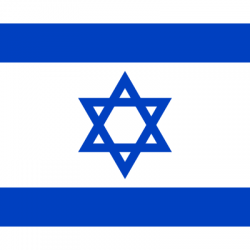
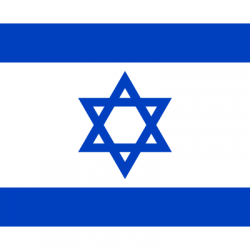
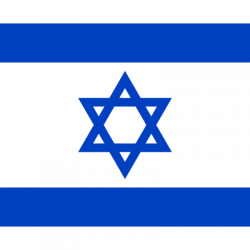
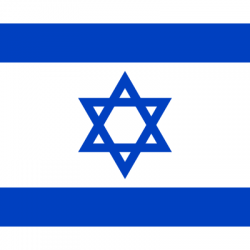
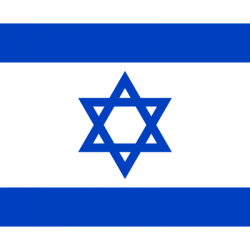
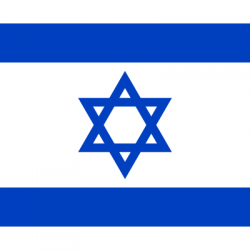
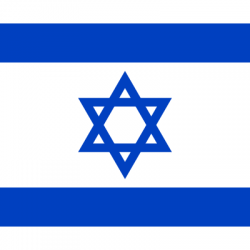
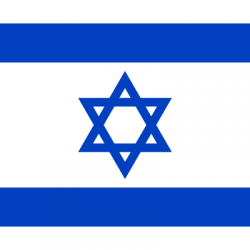
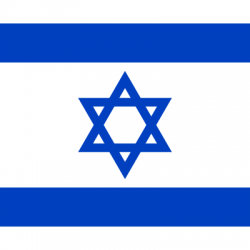
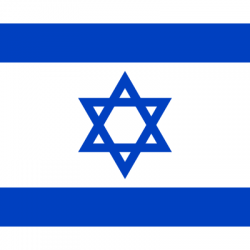
 We will not leak your personal information
We will not leak your personal information